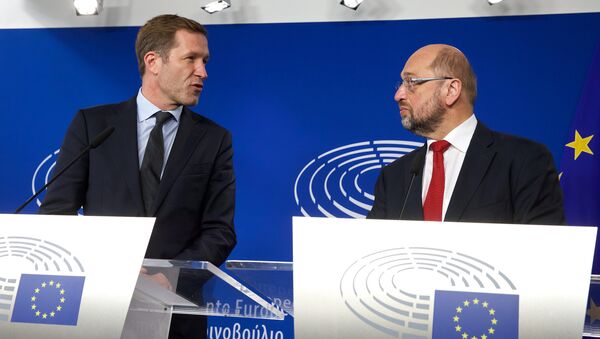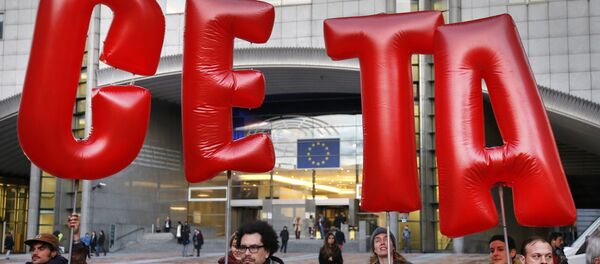BRUSSELS (Sputnik) — Initially, CETA was to be concluded without the involvement of national parliaments, but in early July, following the outrage in some EU countries, the President of the European Commission Jean-Claude Juncker agreed to conclude CETA was a mixed agreement, meaning it needed approval by all of the 38 national and regional parliaments.
"It [problems with ratification of the agreement] shows that in case of CETA we should go back to the trade talks, which would be exclusively within the European competence," Guy Verhofstadt said at the European Parliament’s plenary session, according to Belga news agency.
He also expressed his confidence that the EU-Canada summit scheduled for October 27, where the sides were expected to sign the deal, would not take place.
According to Verhofstadt, the decision on the CETA withdrawal from the category of "mixed" agreements could be taken at the regular meeting of EU trade ministers, set to be held on November 11 in Brussels.
On Monday, Belgian Prime Minister Charles Michel said the nation was "not in a position to sign CETA" amid the Walloon government, the Brussels government, the government of Federation Wallonia-Brussels and the French Community Commission concerns about the deal. Under the Belgian federal laws, every region has a right to reject the agreement.
CETA aims to establish a free trade zone between Canada and the European Union, scrapping more than 98 percent of the existing tariffs between Ottawa and Brussels. Opponents fear it would undermine standards and regulations on environmental protection, health, safety and workers' rights.



